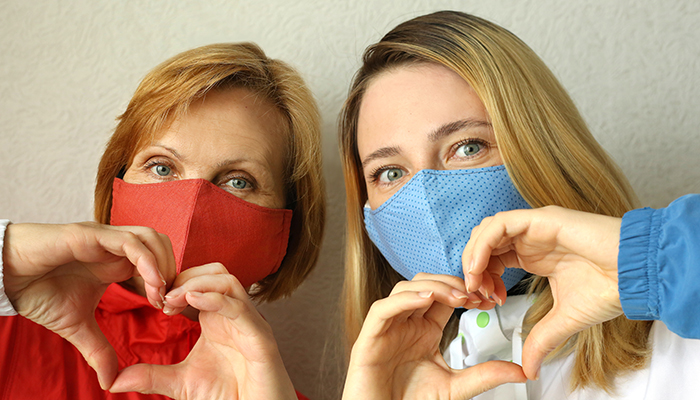
What if, despite your best intentions, you came down with COVID-19?
Of course, we all hope this never happens. But prudence suggests that it’s better to plan ahead and be prepared. You don’t want to be scrambling for supplies and help when you are sick, contagious, and feeling terrible.
If you have family, they too are likely worried about the safest way to ensure you can be cared for if you do get sick. It would set everyone’s mind at ease to have a plan.
In addition to a stockpile of nonperishable foods and your regular medicines, consider the following for your plan:
- Where will you get tested if you suspect COVID? Who will drive you?
- Do you have needed medical supplies? Health officials suggest you try to manage at home. To monitor your health and weather the storm, you need things such as a thermometer, a fever-suppressant drug, cough medicine, etc.
- Do you have a pulse-oximeter to easily track your oxygen level? This will help you more accurately assess if the virus is causing a serious reaction with your lungs and immune system so you can get appropriate help earlier.
- If you live with others, which room will be the sick room? The sick bathroom?
- If you live alone, who will check on you to be sure you haven’t taken a sudden turn for the worse? How will they protect themselves?
- If you live with a partner, how do you protect one another when one is ill?
- What about going to the hospital? How will you know when it’s time? If you have a choice, which hospital is best able to care for you?
- Is your advance directive up to date about your preference concerning ventilators?
Even as you address these questions for your own care, there are still other factors to consider. For instance, if your children have been helping you with food, groceries, etc., what happens if they get sick?
This is a lot to plan for. And much more than your doctor can review with you. Consider working with an Aging Life Care™ Manager to develop a coronavirus plan.
Want to make a coronavirus plan?
Give us a call at [Your Phone].

